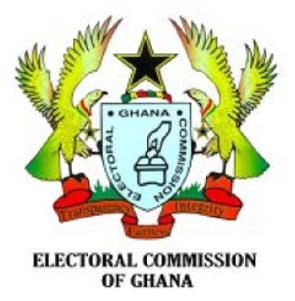The consistent criticism directed at Ghana's Electoral Commission (EC) poses a significant challenge to the consolidation of our democracy. Since its establishment in the Fourth Republic, the EC has been subject to relentless attacks from political parties. While some criticisms have been addressed through the interparty advisory committee, there remain numerous unwarranted and questionable attacks on the institution.
Considering the vital role played by Ghana's Electoral Commission in the democratic process, one would expect these persistent attacks to lead to inclusive participation, fostering innovation and ultimately improving the EC. Despite enduring continuous mudslinging, the EC has conducted eight successful elections since 1992 and has gained a reputable standing.
Although isolated incidents of violence and administrative lapses may occur, the EC has demonstrated its competence across the continent. Responsible political actors should approach the EC with good faith whilst they seek fairness from the institution.
It is understandable for political actors to demand fairness from the EC, which acts as the impartial referee in the electoral process. It is also crucial for political actors to act as checks and balances on the EC to ensure equity and impartiality. It is a known fact that the inclusive involvement of political parties in the EC's institutional activities has led to various reforms and organisational improvements, contributing to the current integrity of the EC.
However, the level of criticism being levied by the NDC (National Democratic Congress) against the EC is not only baseless but lacks substantiation. The NDC's relentless efforts to discredit the EC, particularly since the appointment of Jean Mensah, are detrimental to our democratic progress and sustainability.
The unwarranted attacks have forced the EC to respond to the party vehemently, which many people have found unnecessary and unethical. While the EC cannot be absolved entirely, the NDC's incessant assault on the institution is highly damaging. Such constant vilification of the EC fosters mistrust and undermines confidence which could potentially lead to disruptions and a breakdown of law and order in future elections.
In conclusion, while constructive criticism and vigilance are essential for the healthy functioning of any democratic institution, the consistent and baseless attacks directed at Ghana's Electoral Commission by the National Democratic Congress (NDC) pose a significant threat to the consolidation of our democracy.
The EC has demonstrated its competence and integrity through the successful conduct of eight elections since the establishment of the Fourth Republic. The inclusive involvement of political parties in the EC's activities has led to reforms and improvements, contributing to its reputable standing.
However, the NDC's relentless assault on the EC, particularly targeting its current leadership, undermines public confidence, fosters mistrust and poses risks to future elections. As responsible political actors, it is imperative that we approach the EC with good faith and seek fairness from the institution, ensuring that our democratic progress and sustainability are safeguarded.
Opinions of Friday, 9 June 2023
Columnist: Isaac Ofori















